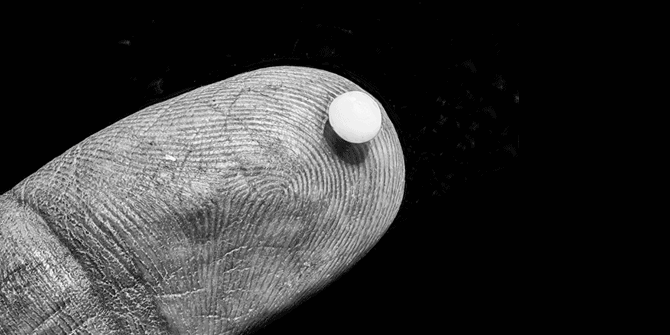What Is The Placebo Effect In Homeopathic Treatment?

The placebo effect is a fascinating phenomenon in medical treatment that has been extensively studied and utilized in various fields.
In the realm of homeopathy, the placebo effect plays a significant role in the effectiveness of treatment.
This article aims to explore the placebo effect in homeopathic treatment, examining its definition, power, and ethical considerations.
Additionally, it will delve into the research conducted on the placebo effect in homeopathy and the potential benefits it offers in patient care.
However, it is important to acknowledge the criticisms and controversies surrounding the placebo effect, as well as the use of placebo-controlled clinical trials in homeopathy.
By understanding the implications of the placebo effect in homeopathic treatment, we can gain insights into its future applications and further enhance patient care.
Key Takeaways
- The placebo effect is extensively studied and utilized in various fields of medical treatment, and homeopathy utilizes it as a significant factor in treatment effectiveness.
- The placebo effect highlights the mind-body connection and the influence of belief in medical interventions, and strength of belief in treatment enhances the placebo effect and improves symptoms.
- Scientific evidence supporting homeopathy is limited, but the placebo effect plays a role in patient perception of improvement, challenging conventional notions of medical treatment.
- Ethical considerations arise in using placebos, including informed consent and deception, and addressing these considerations is crucial in maintaining trust and patient well-being.
Definition of the Placebo Effect
The placebo effect refers to the phenomenon in which a patient’s symptoms improve simply due to their belief in the effectiveness of a treatment, regardless of whether the treatment itself has any active ingredients or therapeutic properties.
It is a well-known concept in the field of medicine and psychology. The placebo effect is often observed in clinical trials, where participants are randomly assigned to receive either the active treatment or a placebo. The group receiving the placebo often shows some degree of improvement, which can be attributed to their belief in the treatment’s efficacy. This improvement is not due to any specific physiological or pharmacological effect of the placebo itself but rather to the patient’s psychological response.
The placebo effect highlights the powerful influence of the mind on physical health and has important implications for the evaluation and interpretation of medical interventions.
The Power of Belief in Treatment
Belief plays a significant role in the efficacy of alternative medical interventions. In the context of homeopathy and the placebo effect, the power of belief in treatment is a crucial factor that influences patient outcomes.
The placebo effect occurs when a patient experiences perceived or actual improvements in their health due to their belief in a treatment, even if the treatment itself lacks any active ingredients or therapeutic properties. This phenomenon highlights the mind-body connection and the influence of psychological factors on health outcomes.
Research suggests that the strength of belief in a treatment can enhance the placebo effect, leading to greater improvements in symptoms and overall well-being. Therefore, understanding and harnessing the power of belief in homeopathic treatment is essential for both practitioners and patients in optimizing the potential benefits of alternative medicine.
How Homeopathy Utilizes the Placebo Effect
Utilizing a multifaceted approach to patient care, practitioners of alternative medicine employ various strategies to tap into the potential for mind-body healing. Homeopathy, a form of alternative medicine, utilizes the placebo effect as one of its core principles.
The placebo effect refers to the phenomenon where a patient experiences a perceived improvement in their condition after receiving a treatment that has no active therapeutic value. In homeopathy, practitioners prescribe highly diluted substances that are believed to stimulate the body’s self-healing mechanisms. These substances are often diluted to the point where no molecules of the original substance remain.
The belief is that the patient’s mind-body connection is activated, triggering a healing response. While the scientific evidence supporting the effectiveness of homeopathy is limited, the placebo effect can play a significant role in patients’ perceptions of improvement and overall well-being.
Research on the Placebo Effect in Homeopathic Treatment
Research on the potential of mind-body healing in homeopathic practices has yielded intriguing findings that challenge conventional notions of medical treatment.
Several studies have investigated the role of the placebo effect in homeopathic treatment, aiming to understand its mechanisms and effectiveness.
One research study conducted by Shang et al. in 2005 analyzed 110 trials comparing homeopathic treatments with placebo or conventional medicine. The study concluded that there was no significant difference between homeopathy and placebo. However, critics argue that the study design was flawed and did not consider individualized homeopathic treatment.
Another study by Walach et al. in 2004 found that the placebo effect in homeopathy could be enhanced through positive doctor-patient communication.
These findings suggest that the placebo effect plays a significant role in homeopathic treatment, highlighting the importance of further research to understand its potential benefits and limitations.
Ethical Considerations in Using Placebos
Ethical considerations arise when considering the use of inert substances that may elicit a psychological response in patients. While placebos have been used in medical research as a control group, their use in clinical practice raises ethical concerns. Here are four important ethical considerations in using placebos:
- Informed consent: Physicians have an ethical obligation to inform patients about the use of placebos and obtain their consent. Patients should be aware that they are receiving a treatment that lacks specific therapeutic properties.
- Deception: The use of placebos involves intentional deception, which challenges the principle of honesty in the doctor-patient relationship. Physicians must carefully balance the potential benefits of using placebos with the ethical implications of deceiving patients.
- Patient autonomy: The use of placebos may infringe upon a patient’s right to make informed decisions about their healthcare. Physicians should respect patient autonomy by providing accurate information and involving them in treatment decisions.
- Equity and resource allocation: Using placebos may divert resources from evidence-based treatments that could provide actual therapeutic benefits. Physicians should consider the ethical implications of allocating resources to placebo treatments instead of interventions with proven effectiveness.
Addressing these ethical considerations is crucial in maintaining trust and ensuring patient well-being in the use of placebos in homeopathic treatment.
Potential Benefits of the Placebo Effect in Patient Care
One intriguing phenomenon in healthcare involves the potential therapeutic benefits that can arise from the psychological response elicited by certain interventions. This phenomenon, known as the placebo effect, has been the subject of extensive research and debate in the field of medicine.
In the context of homeopathic treatment, the placebo effect refers to the positive outcomes experienced by patients who receive inert substances or non-specific treatments. Although homeopathic remedies are typically highly diluted and lack scientific evidence of efficacy, some patients report improvements in their symptoms after taking them.
The placebo effect in homeopathic treatment may be attributed to various factors, including the patient’s beliefs and expectations, the therapeutic encounter, and the natural course of the disease. However, it is important to recognize that relying solely on the placebo effect can raise ethical concerns and potentially delay or prevent patients from receiving effective treatments.
Criticisms and Controversies Surrounding the Placebo Effect
Controversies surrounding the placebo response have sparked heated debates and skepticism within the medical community.
One of the main criticisms of the placebo effect is the ethical concern related to its deception. Critics argue that it is unethical to deceive patients by providing them with a treatment that is essentially inert. This raises questions about informed consent and the potential for harm.
Additionally, some skeptics question the validity of using placebo-controlled trials in research, as they argue that it might not accurately reflect real-world clinical practice. They argue that the placebo effect could confound the results and make it difficult to determine the true efficacy of a treatment.
Furthermore, there is debate about the mechanisms underlying the placebo effect and whether it is truly a psychological phenomenon or if there are physiological factors at play.
Overall, the controversies and criticisms surrounding the placebo effect highlight the need for further research and discussion in order to better understand its role in homeopathic treatments.
Placebo-controlled Clinical Trials in Homeopathy
Placebo-controlled clinical trials in homeopathy provide a rigorous framework for evaluating the efficacy of interventions within a controlled and standardized setting. These trials aim to determine whether the observed effects of homeopathic remedies are due to specific therapeutic properties or simply a result of the placebo effect.
Here are three key aspects of placebo-controlled clinical trials in homeopathy:
- Randomization: Participants are randomly assigned to receive either the homeopathic treatment or a placebo, ensuring that any observed differences in outcomes are not due to bias or confounding factors.
- Blinding: Both the participants and researchers are unaware of which treatment is being administered, reducing the potential for bias and influencing the results.
- Control group: The placebo group serves as a comparison to assess the specific effects of the homeopathic treatment, allowing researchers to evaluate its true efficacy beyond the placebo effect.
By employing these methods, placebo-controlled clinical trials provide valuable insights into the effectiveness of homeopathic treatments, helping to separate genuine therapeutic effects from the placebo response.
Implications for the Future of Homeopathic Treatment
In light of the findings from placebo-controlled clinical trials in homeopathy, it is crucial to consider the implications for the future of homeopathic treatment. These trials have shed light on the role of the placebo effect in homeopathic interventions, highlighting its potential contribution to therapeutic outcomes.
While some argue that the placebo effect undermines the credibility of homeopathy, others contend that it should not be dismissed as irrelevant. Instead, it should be recognized as an inherent aspect of the therapeutic process.
Moving forward, it is essential for researchers and practitioners to acknowledge and explore the placebo effect in homeopathy. This includes investigating its mechanisms, understanding its influence on treatment effectiveness, and determining how it can be harnessed to optimize patient outcomes.
By embracing the placebo effect, the future of homeopathic treatment may hold promise for improved patient care and better integration within conventional healthcare systems.
Frequently Asked Questions
What are some alternative therapies that can be used alongside homeopathy to enhance the placebo effect?
Some alternative therapies, such as acupuncture and aromatherapy, have been used alongside homeopathy to potentially enhance the placebo effect. These therapies may contribute to the overall belief in the treatment’s effectiveness, leading to improved outcomes for patients.
Can the placebo effect be used as a standalone treatment for certain medical conditions?
The placebo effect is a psychological phenomenon where a patient experiences a perceived improvement in their medical condition due to the belief that they are receiving an effective treatment, despite the treatment being inert or lacking any specific therapeutic properties. While the placebo effect can have positive effects on patient outcomes in certain medical conditions, it is not considered a standalone treatment and should be used in conjunction with evidence-based therapies.
Are there any negative side effects associated with the placebo effect in homeopathic treatment?
Negative side effects associated with the placebo effect in homeopathic treatment are unlikely, as placebos are inert substances. However, potential risks can arise if the patient forgoes or delays effective treatment in favor of relying solely on the placebo effect.
How can healthcare professionals ensure that patients are fully informed about the use of placebos in their treatment?
Healthcare professionals can ensure that patients are fully informed about the use of placebos in their treatment by providing clear and comprehensive explanations, discussing the potential benefits and limitations, and obtaining informed consent prior to administering any placebo interventions.
Are there any specific ethical guidelines or regulations in place regarding the use of the placebo effect in homeopathic treatment?
There are no specific ethical guidelines or regulations in place regarding the use of the placebo effect in homeopathic treatment. This lack of regulation raises concerns about transparency and patient autonomy.









